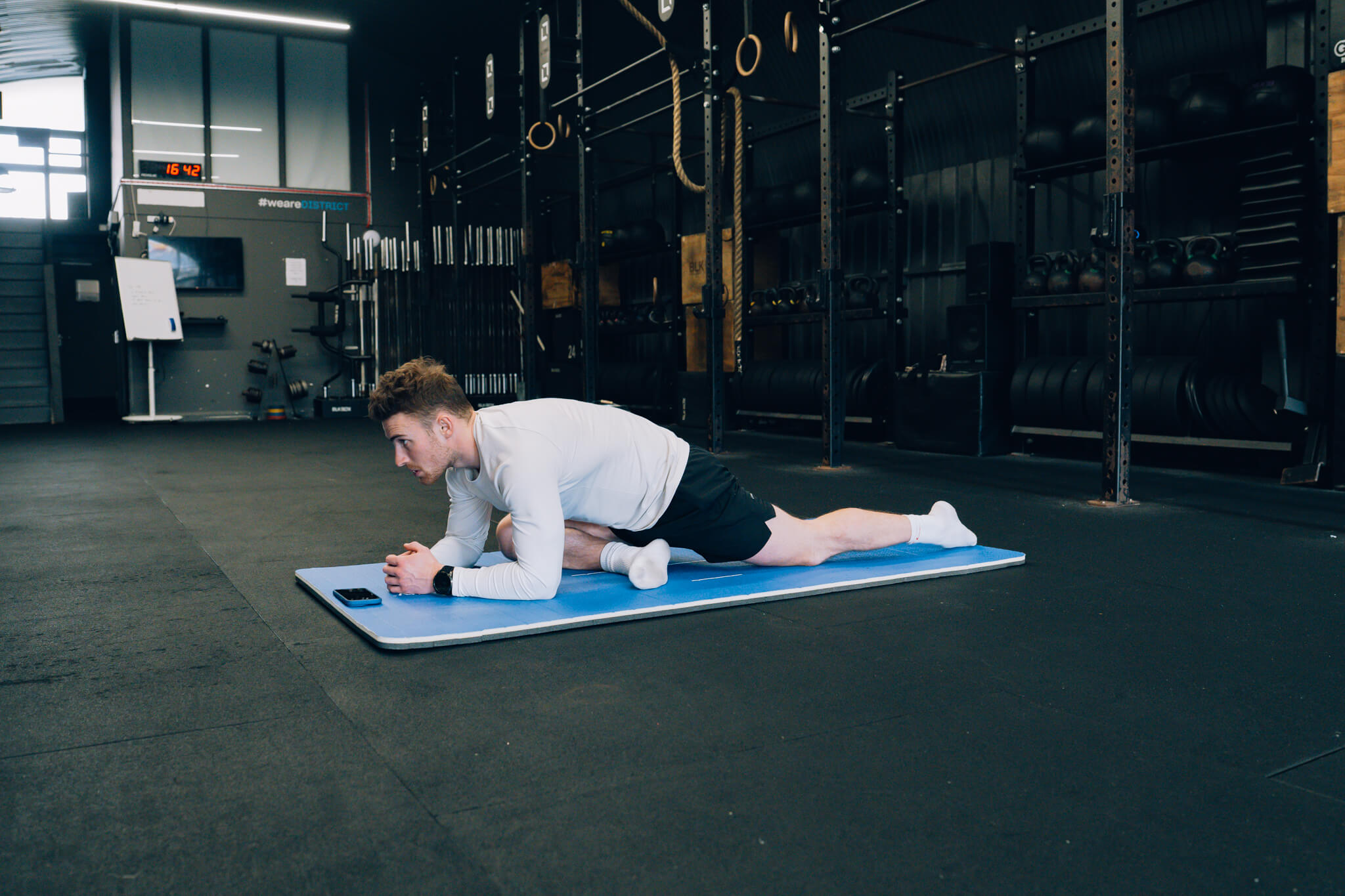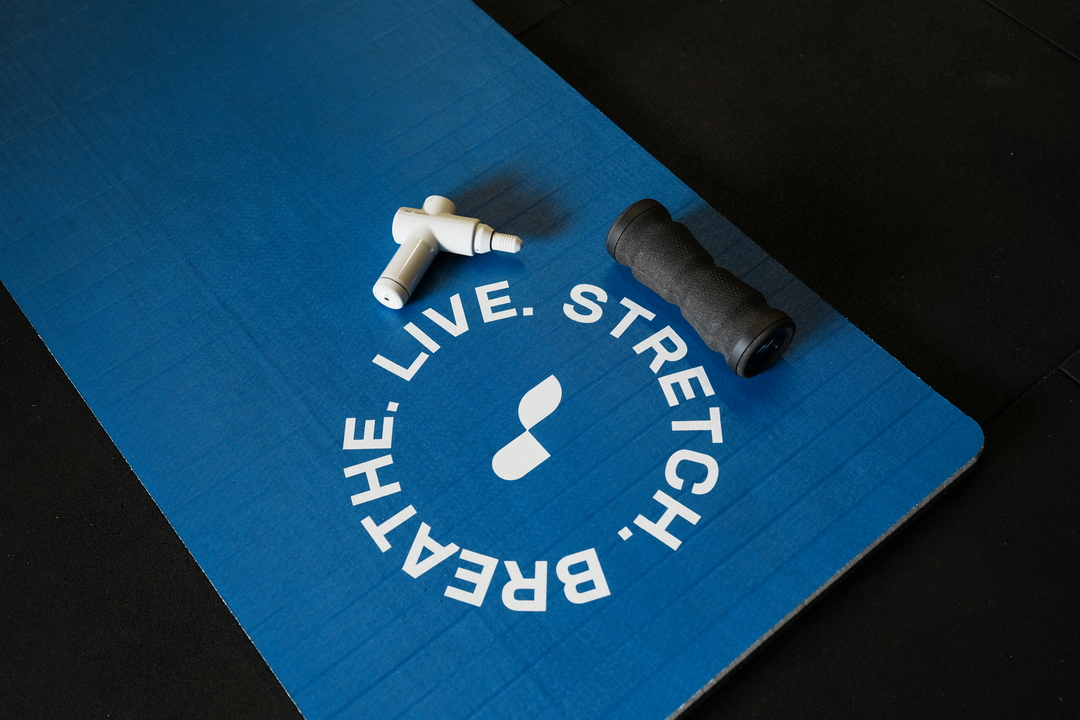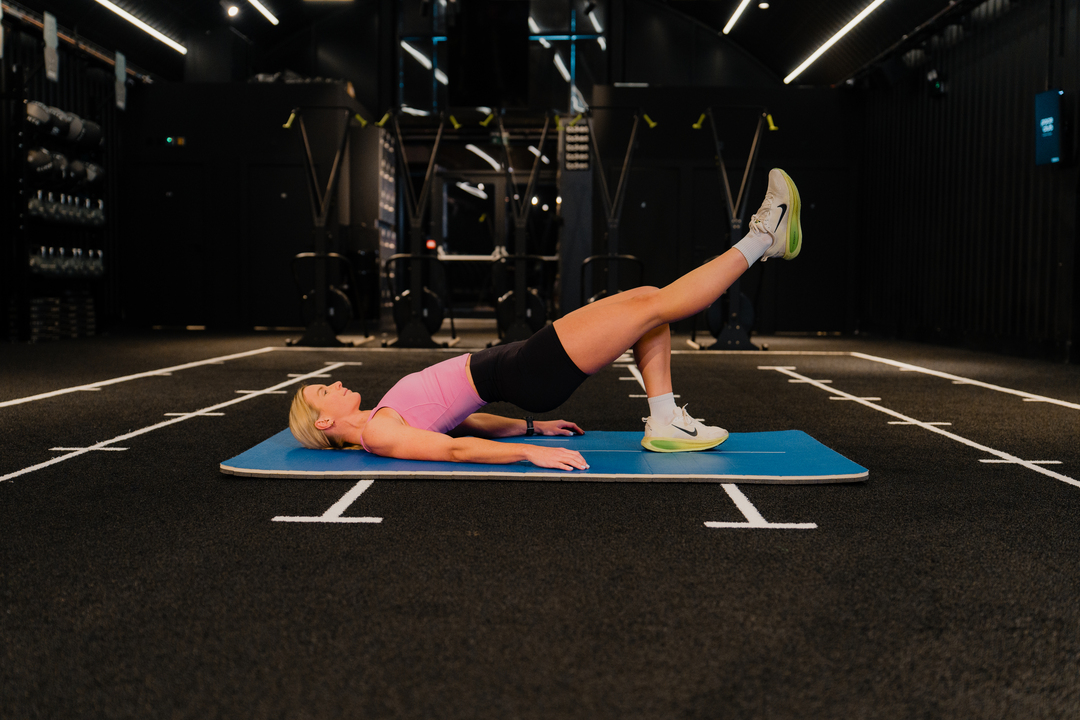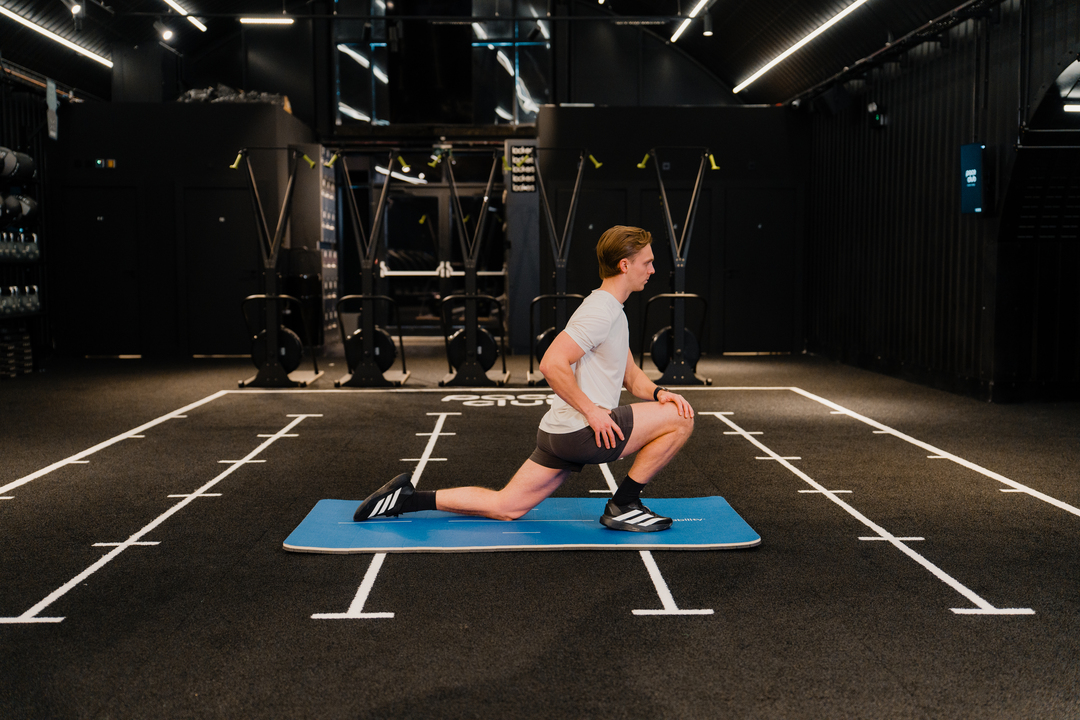After a tough week of training, it’s finally the weekend. The workout is done, and your friends call for a night out. Socializing is essential for mental health and recovery, and sounds like a great way to unwind. But as an athlete, how do you balance your performance goals with having a good time? What are the implications of alcohol on your body, and how long will they last? How long does alcohol affect athletic performance? This article answers these questions to help you make more informed choices regarding your athletic performance and alcohol—an important consideration for anyone looking into how to increase athleticism without compromising their progress.
A mobility app like in Pliability can help you achieve your objectives by preparing your body for the rigors of athletic performance and recovery and helping you bounce back quickly after a night out.
Just How Bad is Alcohol for Athletic Performance?
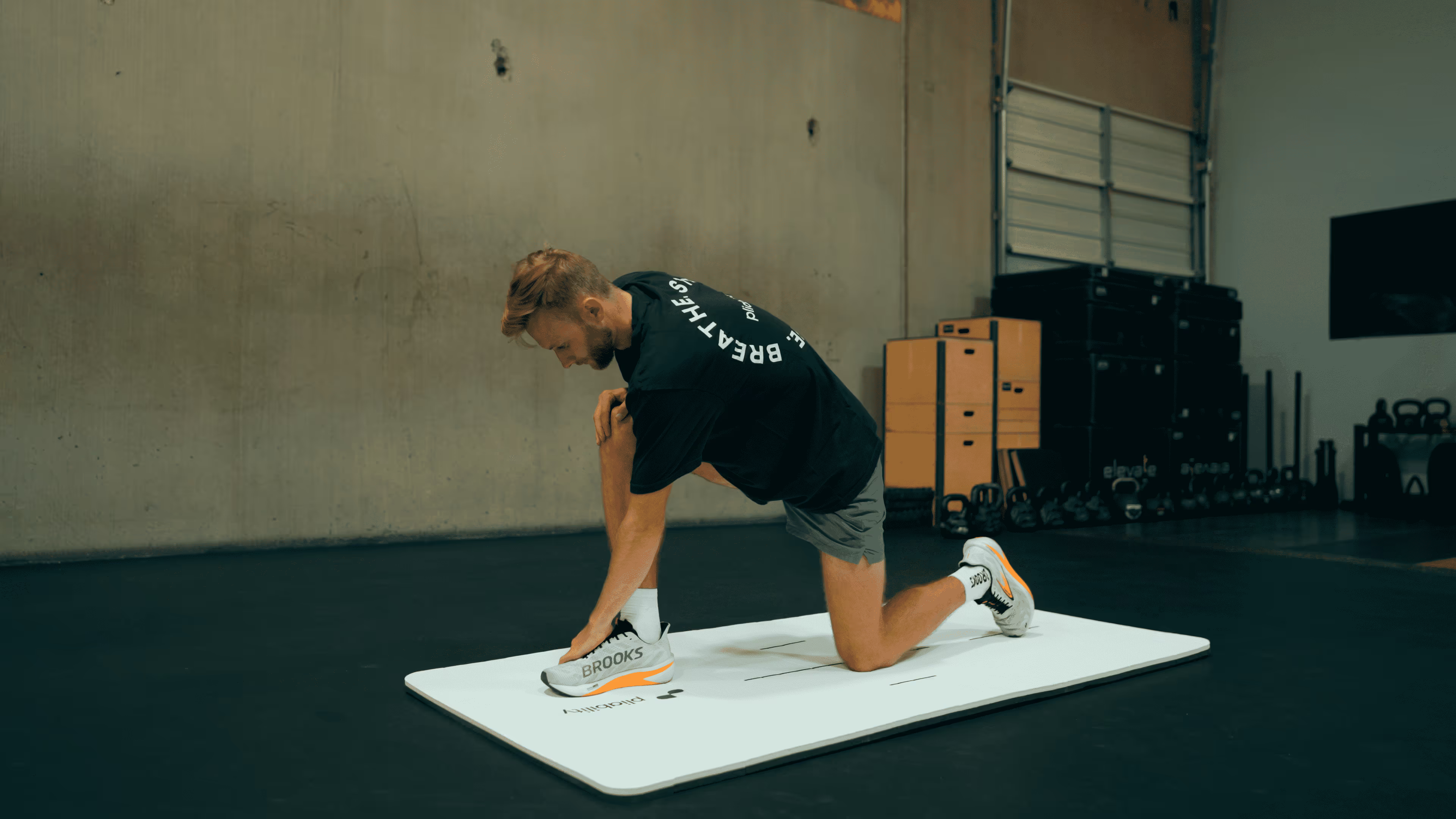
In many ways, alcohol and sports go hand-in-hand: Marathon winners celebrate with an ice-cold drink at the finish line, pro teams partner with booze brands, and “beer league” amateur sports often live up to their name. But a shift may be underway, as a growing number of Americans are drinking less for health reasons, on the heels of a new wave of research about the impacts of even moderate drinking.
In 2023, the World Health Organization contradicted a long-held belief: No, moderate alcohol consumption, like a glass of red wine at dinner, won’t increase your lifespan. Any amount is actively bad for you.
The Uncertain Link Between Alcohol Consumption and Athletic Performance
The extent of alcohol’s impact on athletic performance is still uncertain, though. Can you still make gains in the gym if you like to imbibe occasionally, or every day? “There are not a tremendous number of studies that look at alcohol consumption and sports performance in an athlete,” says Dr. Hallie Labrador, a sports medicine physician at Endeavor Health. She points out that most research studies are either performed on mice or focus on chronic alcohol users.
How Alcohol Affects the Body’s Recovery Process
But even without complex data, experts can make some educated assumptions based on how alcohol functions in the body. “When you introduce alcohol to the system, it's viewed as a poison that the body basically needs to detox,” says Tedd Girouard, director of the athletic training program at the University of Nevada, Las Vegas.
“If we're using some of that energy to detox the body from alcohol, we're not using it to rebuild the body.” Exercise is a form of stress on the body; a cycle of breakdown and repair. The repair stage is when gains are made. When we can’t rebuild properly, we miss out on some of the benefits of exercise.
How Alcohol Consumption Affects Muscle Recovery and Exercise Performance
For strength training, acute alcohol consumption can hinder muscular recovery. A 2014 study found that when test subjects drank after exercise, they had decreased protein synthesis rates, which is necessary for muscle growth and repair.
This test used relatively high alcohol levels, 1.5 grams of alcohol per kilogram of body mass, or about eight standard drinks for a 170-pound individual, and there is not much research about lower levels of consumption. Another study showed that alcohol can also affect endurance training, decreasing power output and increasing the rate of perceived effort, if taken before exercise, which just about anyone would consider a bad idea.
The Impact of Alcohol on Sleep and Athletic Performance
One hugely important element for strength and endurance training is sleep: “We do see a correlation between poor sleep and high alcohol intake,” says Daniel Chavez, registered dietitian at Fay Nutrition. “That's going to matter because a sleep deprived athlete is not going to perform at their highest level.”
So alcohol is probably not great, but you don’t need to quit cold turkey to reap some of the benefits of drinking less.
Related Reading
- Benefits of Sports Massage
- How to Improve Athletic Performance
- Sports Performance Analysis
- Athletic Performance Testing
- How Does Iron Deficiency Affect Athletic Performance?
How Long Does Alcohol Affect Athletic Performance?

Alcohol Impairs Athletic Performance for Up to 72 Hours
When it comes to athletic performance, timing is everything. According to experts, alcohol can impair athletic performance for up to 3 days or 72 hours.
This includes the following skills and abilities, which are crucial for athletes to stay on top of their games:
- Reaction and response time
- Balance and hand-eye coordination
- Precision and accuracy of movement
- Judgment and decision-making
- Stamina and endurance
- Strength and power
Long-Term Effects of Alcohol on Athletic Performance and Health
Alcohol can also slow down recovery time from injuries, further prolonging its effect on the athlete’s overall performance. On top of that, alcohol can have more long-term effects that can permanently impact athletic performance and possibly damage an athlete’s career. Long-term effects include:
- Weakened immune system
- Organ damage (especially of the liver, pancreas and brain)
- Increased risk for certain kinds of cancer
- Increased risk for high blood pressure and heart disease
Alcohol Doesn’t Affect Everyone Equally
How alcohol affects each of us depends on the amount consumed and individual tolerance. Some studies show that a small amount of certain kinds of alcohol (namely red wine) may have a protective effect on the cardiovascular system.
Even a few drinks can nullify your hard work by erasing the impact of your workouts, reducing your endurance, and compromising your mental fortitude.
The Science Behind Alcohol and Athletic Performance
When you consume an alcoholic beverage, the alcohol (ethanol) makes its way to your stomach, where around 20-25 percent of it gets absorbed into your bloodstream immediately. The rest of it continues to your small intestine, which is later absorbed by the bloodstream once more. Once in your bloodstream, the alcohol goes to the liver, where it is metabolized (broken down).
Alcohol is metabolized by a normal liver at a rate of about one ounce (one shot, a regular beer, a regular-sized glass of wine) every 90 minutes. Several varying factors can affect this rate. These include body fat percentage (the lower the body fat, the lower the blood alcohol level) and gender (women typically process alcohol more slowly than men). Any amount of alcohol over the one ounce per 90 minutes ‘quota’ doesn’t get processed right away, and instead saturates your blood until your liver can process the excess alcohol.
How Alcohol Affects Athletic Performance
So now that we know how alcohol works, it’s time to find out why drinking too much, too often, can hamper your progress as an athlete.
It Negatively Affects Protein Synthesis
Alcohol disrupts your body’s ability to absorb protein, impacting protein synthesis. Protein synthesis is the process of joining amino acids to form complete proteins. You must have a positive muscle protein balance if you expect to see your muscles grow and become stronger. A lack of exercise or protein intake could mean your muscle breakdown would exceed muscle growth.
This would lead to a catabolic state in which you lose muscle tissue. A study published in Alcohol and Alcoholism in 1991 found that consistent intake of alcohol halted protein synthesis and caused myopathy in many cases. Myopathy is a condition in which muscle fibers do not function properly, resulting in muscle weakness or loss of movement.
Alcohol and Cognitive Skills
Long-term alcohol misuse has been linked to poor cognitive performance. It affects information processing, working memory, focus, attention, and more. Even in the short term, alcohol can cloud your thinking, leading to poor decision-making and performance.
Alcohol impairs the brain’s hippocampus, which is responsible for memory. This makes it harder for athletes, especially in football and basketball, to remember plays, strategies, and other crucial details.
Alcohol and Energy Levels
Alcohol causes water imbalance in the muscle cells, hindering the production of adenosine triphosphate (ATP), the body’s energy currency. Reduced ATP can drop energy levels, and endurance takes a hit. Your liver helps by releasing glucose into the bloodstream, producing blood sugar and boosting energy levels.
Drinking alcohol, however, can interfere with the liver’s ability to make blood sugar, leaving you with less energy to draw from. Athletes need high and consistent energy levels to stay on their game during training and competitions. Frequent alcohol consumption can undermine overall performance due to low energy and weakened endurance.
Alcohol and Reaction Time
Alcohol is a sedative, which means that even small amounts can significantly slow down your reaction time and impair your performance. It also messes up hand-eye coordination, making it harder for you to respond quickly and accurately. Dulled response capabilities compromise your ability to think and react, making you more prone to making mistakes.
This can manifest when making split-second decisions or instinctive moves. As an athlete, even a slight delay in reaction time can cost you the game or result in an otherwise preventable injury.
It Lowers Testosterone Levels
Testosterone is a key hormone that allows muscles to grow and repair. Low levels of testosterone (or decreases in the hormone) are linked with decreases in lean muscle mass and muscle recovery, which is bad news. The presence of alcohol in your body triggers a multitude of chemical processes, including the release of a toxin from your liver that attacks the amount of testosterone you have.
A 2009 study published in Bone found that frequent drinkers in the armed forces had significantly low testosterone levels, as well as high estrogen levels. This is important because estrogen lowers the amount of testosterone in the body, and yep, you guessed it, alcohol slows down your ability to process estrogen, allowing it to build up in your bloodstream.
It Causes Dehydration and Depletes Your Energy
Alcohol is also a diuretic: A substance that promotes the production of urine. This means the kidneys must work overtime to filter huge amounts of water to break down the alcohol you consume (through urine). Depending on how much you drink, this can lead to severe dehydration.
While dehydrated, you’re at a greater risk of sustaining musculoskeletal injuries such as cramps and muscle strains. Furthermore, your appetite will decrease, even though you must consume the same food as before to fuel your body for training.
How Alcohol Disrupts Muscle Function and Endurance
Once alcohol is absorbed through your stomach and small intestine and moves into your cells, the water balance in your body is disrupted. This makes the ability of your muscle cells to produce adenosine triphosphate (ATP) much harder. ATP is a fuel source that is crucial in helping your muscles contract.
A reduction in your body’s ATP can result in a lack of energy and loss of endurance. In addition, water plays a crucial role in muscle-building, as muscles are 70 per cent water. So even if you are slightly dehydrated, your muscles will suffer.
It Depletes the Body of Vitamins and Minerals If Consumed in Large Amounts
We all need vitamins and minerals to keep our bodies healthy and functioning correctly. Unfortunately, alcohol consumption causes vitamins A, C, the B’s, calcium, zinc and phosphorus to be drained rapidly.
It Increases Fat Storage
Alcohol has about 7 calories per gram, meaning that you could be drinking a hefty meal on a night out without even realizing it. Unfortunately, your muscles are not able to use these calories for fuel. Instead of being converted to glycogen (stored carbohydrate), your body treats alcohol as fat. As a result, alcohol consumption increases fat storage and can adversely affect your percentage of body fat.
Alcohol Negatively Impacts Muscle Recovery
After a strenuous workout, your muscles need time to recover and repair the tears in the muscle fibers. This is how your muscles grow and become stronger. One of the best ways to heal is through quality sleep, but because drinking alcohol negatively affects your sleep patterns, your body is robbed of a precious chemical called human growth hormone, or HGH, that is released during sleep.
HGH is vital in muscle growth and repair, but alcohol can decrease HGH secretion by as much as 70 percent! Unsurprisingly, the studies back this up. In 2012, a group of researchers at Massey University in New Zealand published a series of studies showing that alcohol consumption post-exercise severely restricts an athlete’s ability to recover from delayed-onset muscle soreness.
The Role of Alcohol in an Athlete's Diet
In addition to its stress-relieving effects, certain types of alcohol contain beneficial antioxidants and anti-inflammatory compounds. For example, red wine contains a chemical known as resveratrol that reduces your blood pressure, consequently protecting your cardiovascular system. Of course, one could get the same benefits from various healthy food options, but where’s the fun?
The role of alcohol within your diet should not be underplayed, but I don’t think you should ignore it altogether. Understand that it may be why you’re struggling to progress in your fitness goals, so cutting back is probably a wise decision. But at the same time, remember that you only have one life, so you should live it to the fullest! If that means having a nice brew occasionally, then so be it.
Does When I Drink Matter?
Drinking at different times will have various impacts on athletic performance. It’s essential to understand how your choices at varying stages can impact your athletic performance and the risks associated with each.
Pre-Exercise
Drinking the night before exercising can impact your performance.
Your endurance will be lower than usual, and you may experience hangover symptoms, including:
- Nausea and vomiting
- Headaches
- Fatigue
- Muscle aches and pains
- Dehydration
The Impact of Hangovers on Athletic Performance
Hangovers have earned the apt nickname the “self-inflicted flu.” These uncomfortable feelings can prevent you from performing at your best. You’ll notice a slower reaction time and imbalanced hand-eye coordination. Sometimes, hangovers can prevent you from participating in athletic events altogether.
Drinking the night before can also impact your sleep. A lack of sleep or disturbed sleep can cause:
- Difficulty concentrating
- Increased blood pressure
- Elevated heart rate
These symptoms can significantly impact an athlete’s ability to perform at their best.
During Exercise
Alcohol is a depressant, so drinking it ahead of a workout will slow your reaction time and adversely affect your coordination and balance. Working out with these effects can pose a potential danger and decrease the results you’re looking to achieve. Drinking before you work out or participate in a sporting event will increase dehydration.
Working out already causes the body to lose fluids, which you can replace by drinking water. Replacing the fluids your body loses decreases the chance of experiencing symptoms such as:
- Dizziness
- Nausea or vomiting
- Muscle cramps
- Fast heart rate
- Headache
Since drinking to excess can cause many of these effects anyway, further dehydration from alcohol will compound these and lead to more severe symptoms, such as:
- Confusion
- Weakness
- Lethargy
- Loss of consciousness
Post Exercise
Some athletes choose to drink after they exercise or play a game. They may do so to cope with muscle soreness or injury resulting from physical activity or celebrate with teammates. While alcohol can temporarily relieve muscle soreness and pain, it prevents your body from healing efficiently.
Drinking alcohol increases the hormone cortisol rather than testosterone, which will impact the muscular gains from a workout. Rather than gaining and toning muscle, athletes may see little to no changes if they drink each time they finish a workout.
How Chronic Alcohol Consumption Affects Bone Health and Injury Recovery
Binge or chronic drinking can increase your parathyroid hormone levels. This vital hormone is necessary for regulating calcium, which promotes bone health. When the parathyroid hormone exists in excess, it can deplete too much calcium from the bones, increasing the risk of fractures.
It also prevents bones from healing adequately after an injury. Alcohol can increase your risk of severe injury, limiting an athlete’s ability to participate in sporting events or workouts.
Related Reading
- Adaptogen Benefits for Athletes
- Athletic Performance Counseling
- How to Improve Running
- How to Get Faster at Sprinting
- How to Run a Faster Marathon
- How to Increase Stamina for Running
- How to Improve Agility
5 Ways to Minimize Alcohol’s Impact on Athleticism

1. Moderation Isn't a Four-Letter Word: Follow Alcohol Consumption Guidelines
Everything in moderation, right? That includes alcohol. Moderate drinking guidelines set by the Dietary Guidelines for Americans suggest up to one drink per day for women and two for men. A 2014 review suggests similar limitations: 0.5 grams per kilogram of body weight, or about two standard U.S. drinks for a 170-pound person. We know this is easier said than done.
“Alcohol has this magic, inhibitory ability,” says Girouard. “Once you’ve had one or two drinks, having three or four becomes a lot easier.” So, he recommends writing out a plan for a night out when you’re sober so you can stick to it even with a few drinks in your system. You can tell a friend or partner for some added accountability.
2. Hydrate and Fuel: Alcohol Impacts Blood Sugar and Hydration
Dr. Labrador recommends that anyone drinking hydrate and fuel their body correctly. Alcohol affects the metabolism of sugar and can cause hypoglycemia, or low blood sugar. As your liver processes alcohol, it stops releasing glucose, an essential fuel source during exercise. If you plan to train the day after drinking, ensure you eat enough food, specifically carbohydrates, to fuel this deficit.
Dehydration is another primary concern, as exercise and alcohol negatively impact hydration levels. So while drinking water around the clock is best, Chavez recommends balancing your water and alcohol intake ounce for ounce. 12 ounces of alcohol? Follow it with 12 ounces of water.
3. Time Your Drinking: Plan for Optimal Performance
You can also consider timing your alcohol consumption with your training schedule. For example, if you work out three days a week, Dr. Labrador recommends skipping the post-workout drinks to build muscle or strength. Instead of happy hour right after the gym, have that old-fashioned or mezcal cocktail on your off-day so you won’t affect protein synthesis.
4. Log Your Alcohol Usage: Keep Track of How Alcohol Impacts Your Performance
If you’re curious how alcohol is impacting your fitness, you could keep a log of your workouts, tracking days you drink like Girouard does with his athletes: “After their workout, I have them write into their log, like how did I actually feel today? How hard was it in comparison to how hard it should have been?” he says. You can rank your rate of perceived exertion on a scale of one to 10, and then have a feedback system with a score attached to it to drive home the data.
Another option would be to wear a wearable device, like a Whoop or an Oura Ring, which gives you a recovery score. Log your drinks in the app, and over time, you can notice patterns on whether or not your recovery score tracks with your habits. Three drinks send it plummeting, while one drink barely moves the needle. You can tailor your behavior from there.
5. Personalize Your Approach: Consider Your Goals and Lifestyle
Recommendations about alcohol consumption come down to your fitness goals and intention. Starting too strictly may not be the most sustainable approach. “Many athletes I've worked with accept the fact that having a few drinks may affect them, but it's that ingrained in their life, and that's fine,” says Girouard. “Everyone has different goals, and many people do sports and work out purely for enjoyment. It's not about performing at the highest level.” For some, moderate drinking comes with social benefits, so that it may be worth the modest decrease in fitness.
Balancing Alcohol and Athletic Goals: Elite Athletes vs. Weekend Warriors
Your athletic experience might also dictate how strict an approach you take: “When you get to the very highest level, making gains at one or two percent in a year is huge,” says Girouad. “So if alcohol is holding you back, that might be quite significant. Whereas a weekend warrior, they can make a 20 percent gain in a year, so maybe drinking wouldn’t be as noticeable.”
Whether you cut out alcohol entirely or take a more strategic approach to drinking, you can still increase your fitness. “Can someone still make gains and improve their athletic performance while drinking moderately?” I ask Girouard. “You’re really putting me on the spot,” he laughs. “Yes. They absolutely can. I just think they’re leaving something on the table.”
Related Reading
- How to Improve Sports Performance
- Best Vitamins for Athletes
- Strength Training for Athletes
- Cross Training for Swimmers
- Cross Training for Runners
- Best Peptides for Athletic Performance
- Breathing Exercises for Athletes
- Goal Setting for Athletes
Improve Your Flexibility with Our Mobility App Today | Get 7 Days for Free on Any Platform

Pliability: The Mobility App for Athletic Performance
Pliability offers a fresh take on yoga, tailored for performance-oriented individuals and athletes. Our app features a vast library of high-quality videos designed to:
- Improve flexibility
- Aid recovery
- Reduce pain
- Enhance range of motion
Pliability provides daily-updated custom mobility programs for those interested in optimizing their health and fitness. It also includes a unique body-scanning feature to pinpoint mobility issues. If you're feeling limited by pain or ability to move, Pliability aims to complement your fitness routine and help you move better.
Sign up today for 7 days absolutely for free on iPhone, iPad, Android, or our website to improve flexibility, aid recovery, reduce pain, and enhance range of motion with our mobility app.
